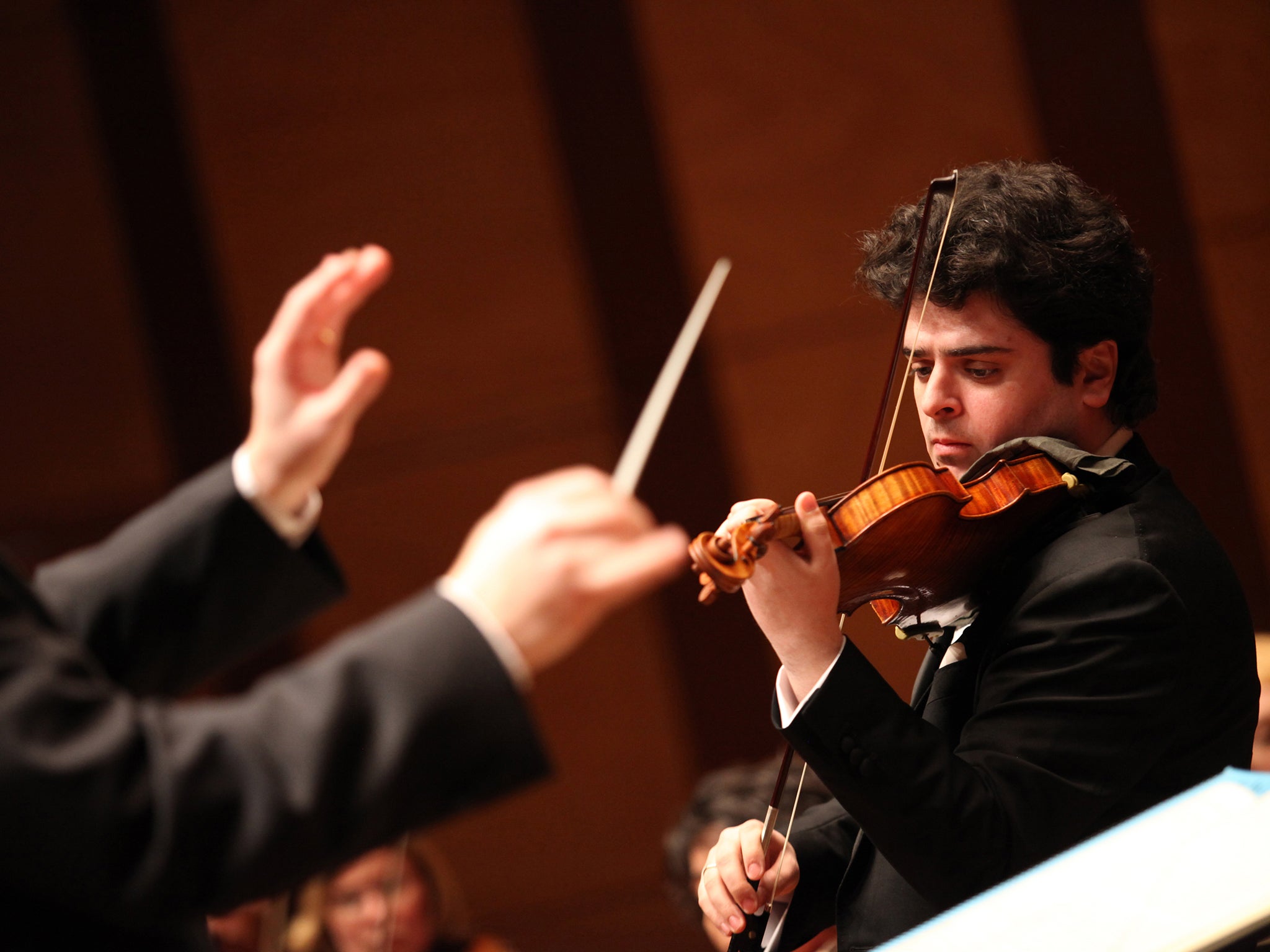Barenboim/Kozhukhin, Wigmore Hall, London, review: Superb accompanist lifts violinist's limited palette
It was wise of Michael Barenboim to choose the excellent pianist Denis Kozhukhin for his Wigmore Hall debut

Your support helps us to tell the story
From reproductive rights to climate change to Big Tech, The Independent is on the ground when the story is developing. Whether it's investigating the financials of Elon Musk's pro-Trump PAC or producing our latest documentary, 'The A Word', which shines a light on the American women fighting for reproductive rights, we know how important it is to parse out the facts from the messaging.
At such a critical moment in US history, we need reporters on the ground. Your donation allows us to keep sending journalists to speak to both sides of the story.
The Independent is trusted by Americans across the entire political spectrum. And unlike many other quality news outlets, we choose not to lock Americans out of our reporting and analysis with paywalls. We believe quality journalism should be available to everyone, paid for by those who can afford it.
Your support makes all the difference.It was wise of Michael Barenboim to choose the violin rather than the piano, as his father Daniel is still one of the greatest pianists in the world.
Barenboim fils is now carving out a solo career after laying a very solid foundation as concertmaster of the politically ground-breaking West-Eastern Divan Orchestra. And it was wise of him to choose Denis Kozhukhin as accompanist for his Wigmore Hall debut, because this young Russian pianist is a keyboard poet of the first order.
Barenboim’s programme was severe – three Brahms sonatas on the trot - and he gave the opening to the Sonata in G Op 78 a firm but over-careful sound, which Kozhukhin – clearly very much an equal partner – offset with the delicately-shaded pianism with which we associate him.
Barenboim’s playing was clean and unfussy, but his palette seemed limited, and his volume-control was mostly stuck on forte; Kozhukhin’s playing throughout this work had much more character and nuance.
With the Sonatas Op 100 and Op 108 Barenboim developed some expressivity, and together these players despatched the virtuoso finale of the latter piece in fine style. Barenboim’s Kreisler encore – Liebeslied - was efficient but didn’t sing: ah well, early days.
Join our commenting forum
Join thought-provoking conversations, follow other Independent readers and see their replies
Comments